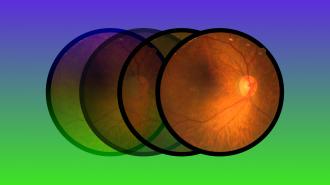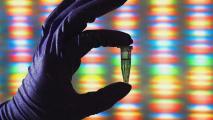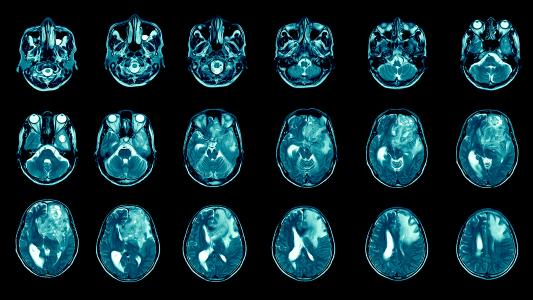The path to reversing a common cause of blindness might be in our eyes already — and a new gene therapy shows how to take advantage of it.
Retinal degeneration: When light enters the eye, it travels to the retina, where nerve cells called “photoreceptors” convert the light into electrical signals that are eventually sent to the brain.
Genetic diseases and other health issues can damage retinal cells. This condition, called “retinal degeneration,” is one of the most common causes of vision loss worldwide, and while some treatments can slow the damage to prevent further vision loss, there’s currently no way to reverse it.
“Müller cells are known to reactivate and regenerate retina in fish, but in mammals, including humans, they don’t normally do so.”
Camille Boudreau-Pinsonneault
But, in addition to photoreceptors, the retina is also home to Müller cells. These cells develop from the same parent cell lines as photoreceptors, but they aren’t nerve cells — instead, they provide support to photoreceptors and other neurons in the eye.
“What’s interesting is that these Müller cells are known to reactivate and regenerate retina in fish,” said Camille Boudreau-Pinsonneault, first author of a new study out of the University of Montreal. “But in mammals, including humans, they don’t normally do so, not after injury or disease. And we don’t yet fully understand why.”
What’s new? For their study, published in Proceedings of the National Academy of Sciences, the University of Montreal team reprogrammed Müller cells, taken from mice, to display characteristics of photoreceptors.
They triggered the expression of two genes (Ikzf1 and Ikzf4) to cause this transformation, because the proteins made by those genes had previously been identified as playing a role in retinal cell development.
“We may one day be able to … stimulate them to regenerate retinal cells lost to pathological conditions and to restore vision.”
Ajay David
While the researchers managed to turn the Müller cells into neuron-like retinal cells, with just two genes, they didn’t completely transform them into photoreceptors — figuring out how to do that is one of their next goals.
Ultimately, the technique will need to undergo significant safety and efficacy testing in animals before clinical trials could be considered in humans.
Looking ahead: This isn’t the only potential pathway to treating retinal degeneration, and several other ideas are further along — a bionic eye has already been tested in people, for example, and lab-grown retinas are ready to be transplanted into eyes in clinical trials.
If the researchers are able to replace damaged photoreceptors simply by triggering the expression of genes already present in Müller cells, though, it could be a less invasive type of retinal degeneration treatment — a single injection of the gene therapy might do the trick.
“We may one day be able to take advantage of the cells that are normally present in the retina and stimulate them to regenerate retinal cells lost to pathological conditions and to restore vision,” said co-author Ajay David.
We’d love to hear from you! If you have a comment about this article or if you have a tip for a future Freethink story, please email us at [email protected].






